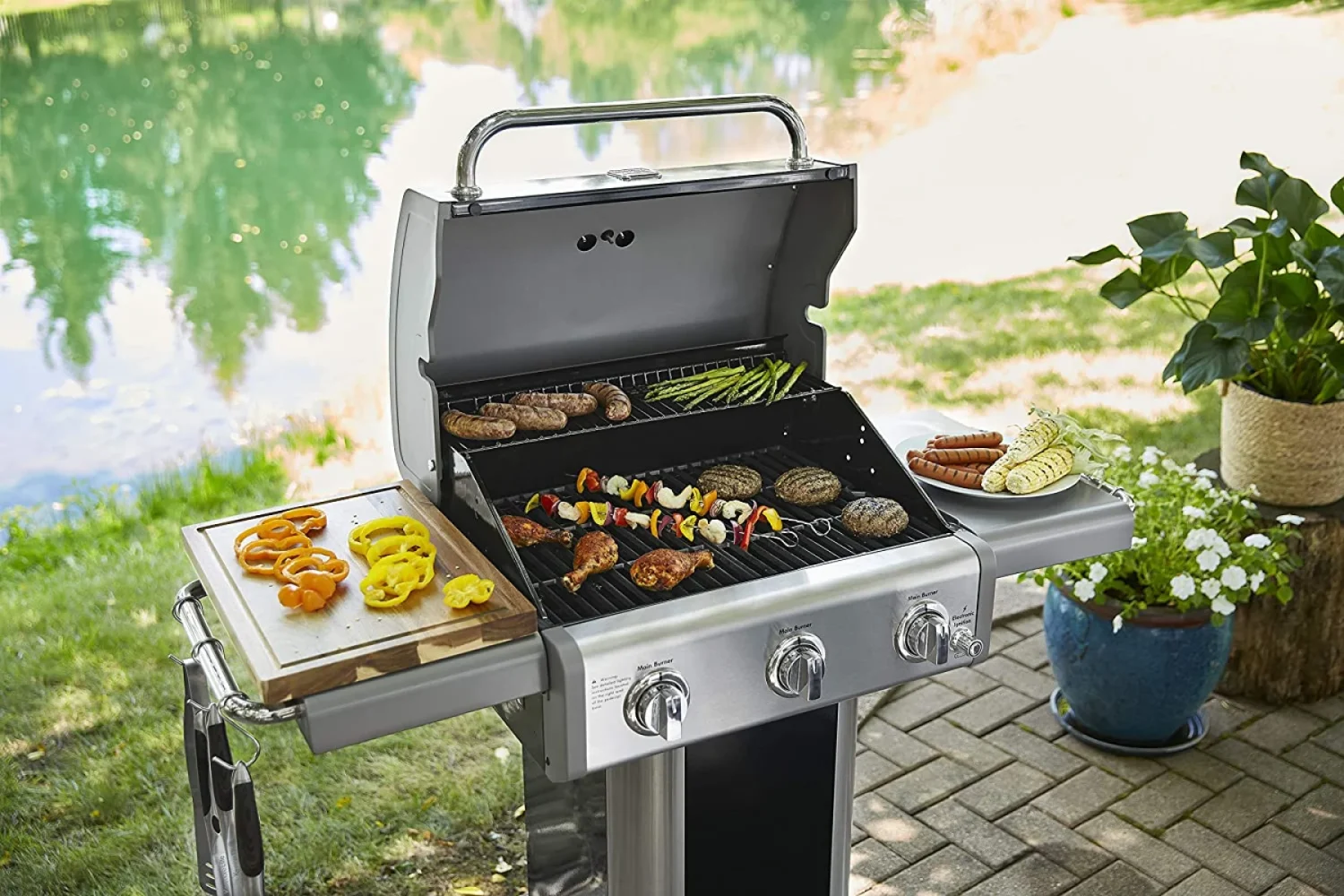For summer cookouts to parties and birthday celebrations, a gas grill is a trusty and dependable sidekick that will get the job done. This grill can serve you countless cooks of burgers, sausages, chicken wings, or veggies. Sadly, all grills are vulnerable to wear and tear, and even the high-quality ones eventually break down, which leaves us wondering how long should a gas grill last?
It is a question that has many answers, and it entirely depends on how often you use the grill and how well you maintain it. To better understand the grill’s longevity, you need to consider the materials it is made of and various other factors. In this article, we will talk about how long should gas grill last and how to know when it is time to replace it, so without further redo, let us get into it.
How Long Does A Gas Grill Last?
Typically, gas grills can last between five and fifteen years. With that said, most people tend to throw away their gas grills way too early without knowing how to fix and maintain them. There are ways to prolong your grill’s lifespan, which we will talk about later.
The longevity of the grill depends on how well you take care of it. You can prevent it from getting damaged and make it last longer by cleaning it before and after each use and replacing the broken parts as the need arises.
How to Know When My Gas Grill Needs Repair or Replacement?
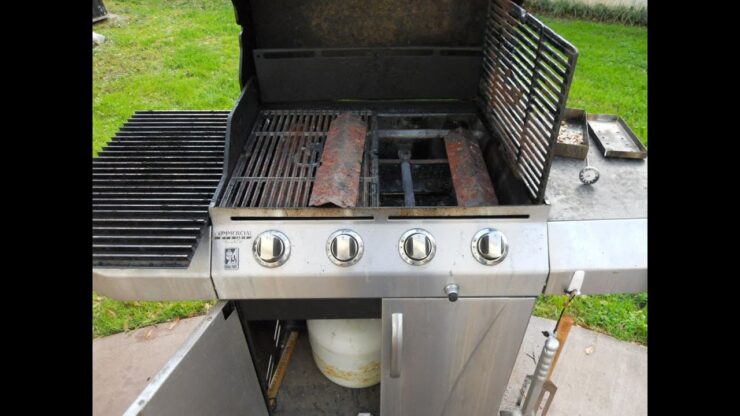
There are multiple indications that your grill needs repair or replacement. You will notice that the performance is not on the same standards as it was before and that certain features are not working. Here are some of the common signs that your will notice fastest:
- Your grill cannot light
- Once you manage to light it, the flame is low
- Frequent gas leaks
- Large flames coming from the sides of the burner
- The flame turns yellow or orange
- Hoses and fuel lines are cracked
- Grease and debris start building up in huge amounts
- Inability to reach maximum temperature
- Damaged or dirty venturi tubes
- Heat does not spread evenly
- Too much smoke
- Exterior damage
Materials
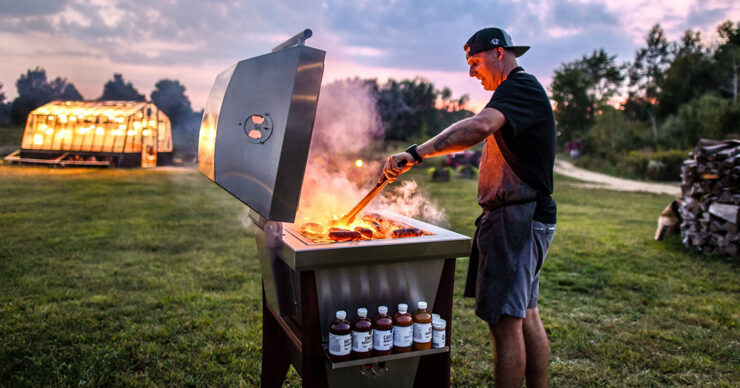
To get a better understanding of your grill’s lifespan, you need to know the materials from which the grill is made. Given the nature of gas grills and their intended purpose, they are bound to wear and tear over time which is completely normal. However, there are materials that are tougher than the others, and the gas grills made of top-notch materials tend to last longer. Here are some examples of materials used in grill manufacturing.
Coated Steel and Aluminum
The grills made of coated steel and aluminum are typically budget-range and mid-range solutions. They are coated with heat-resistant and corrosion-resistant paint. This coating will prevent rust but will not last for an extended period. Once the rust starts setting in, it will be tough to stop the process. Expect this grill to last five years if you use it regularly.
Enameled Steel
Enameled steel is a slightly better option to go for and a step up from standard coated steel and aluminum. The enameling process ensures that you get a higher quality of a heat-resistant surface. These grills generally last between five and seven years, sometimes even longer.
Cast-Iron
Cast-Iron is a hard material that is typically used on smaller, portable tabletop grills. This material is vulnerable to corrosion, but you can prevent it by cleaning it before and after each use and seasoning it with oil between each cook. The oil can fill in the penetrable surface and delay corrosion. Cast-Iron grills typically last around five years before rust starts setting in.
Stainless Steel
Stainless Steel is a premium material and is used in long-lasting two-burner grills and similar products. This material is formulated to resist corrosion on a very high level and offers a premium aesthetic. The more stainless steel is used in the grill’s manufacturing process, the better it is and the longer it lasts. These grills last between seven and ten years, in some situations, even longer.
How to Prolong the Lifespan of My Gas Grill?
The longevity of your gas grill largely depends on you use it. The brand quality does have a role to play in the grill’s lifespan, but your actions and maintenance are the key factors that directly influence longevity. Here are some of the actions you can take in order to prolong your grill’s life.
Wipe Down the Exterior of the Grill
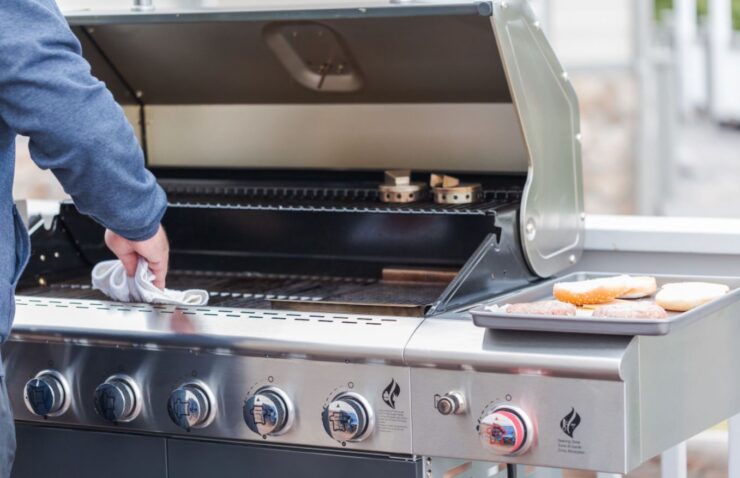
It is very important to wipe down the exterior of your gas grill. Avoiding doing so will allow rust to set in, which will be very difficult, if not impossible, to remove and will dramatically reduce the product’s lifespan.
Clean the Grates
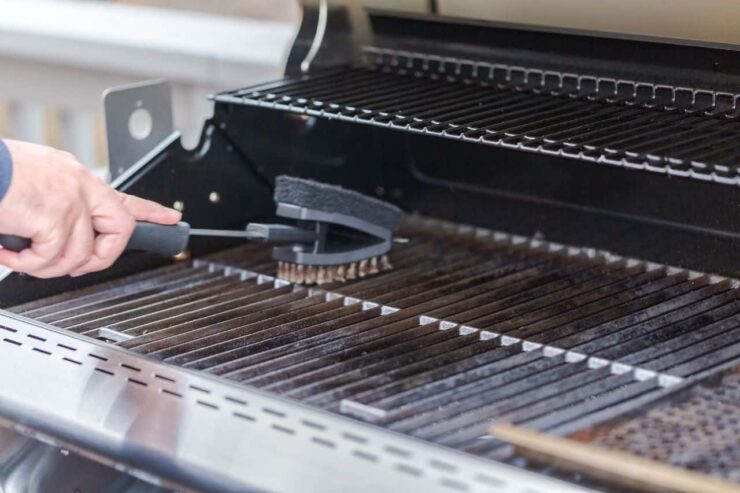
Regular cleaning of the grates will not only prolong your grill’s life but will also help you retain the quality taste of your food. Cleaning grates is not difficult, and you can do it with a wire brush with some soapy water. These tools will effectively remove leftovers fast and easily.
Check and Clean Burner Tubes
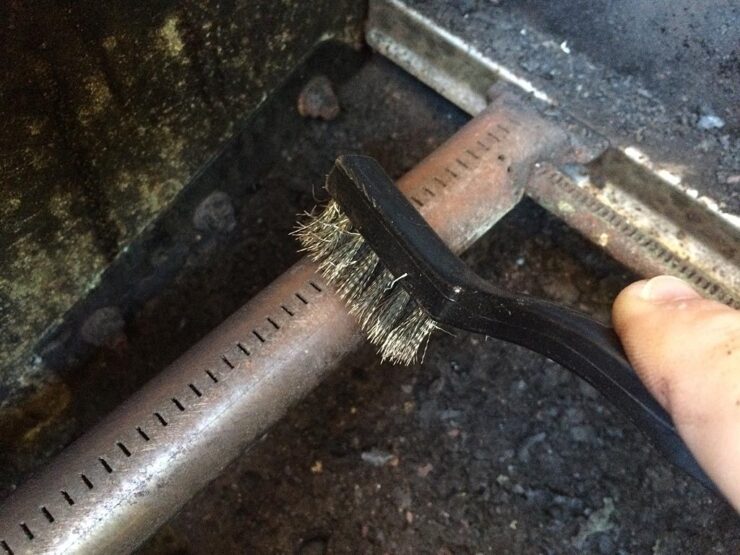
To get that juicy and delicious flavor in your food, your grill needs to generate quality and consistent flames. The way you can ensure this is by checking the burner tubes and cleaning them regularly.
Get Rid of Grease and Other Build-Ups
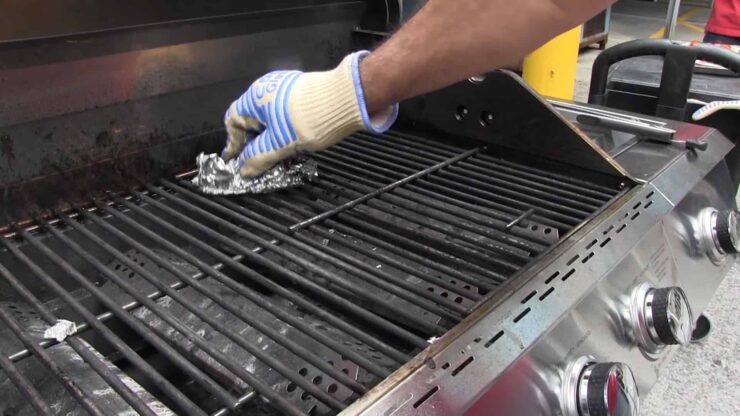
The grease stains and build-ups are a factor that can often reduce the longevity of your gas grill. These build-ups and stains will reduce the overall performance of your grill and will eventually be the end of it if you do not clean it properly.
The Deep Clean
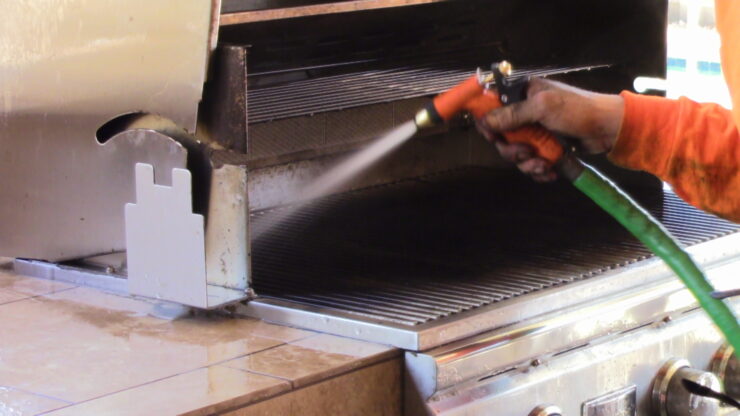
The deep clean is something that is highly recommended to do by the end of each grilling season. If you frequently grill, for example, year-round, do the deep cleaning twice a year or at least every six months.
Common Grill Parts That Often Require Replacement
Gas grills, same as the other machines, have certain parts that will break down regardless of the way you take care of them. These are costs that you simply need to count on whenever purchasing a gas grill, even if you are buying an expensive and high-quality product. Here are some problematic parts that you should pay more attention to.
- Fuel hoses
- Switches on the control panel
- The ignition system on a grill
- Assemblies of burners
Final Words
The bottom line is that the longevity of the grill may depend on the brand and the quality of materials, but a considerable part of the responsibility rests on how well you maintain it and how well you use it. If you do your fair share, expect your grill to last as low as five and as high as fifteen years.
We hope you found our article informative and that you got enough from it to make a suitable purchase of the gas grill and maintain it well enough to serve you for an extended period. If, by any chance, the grill you purchase breaks down before typical longevity is up, revisit your warranty, and you will easily get a replacement.

